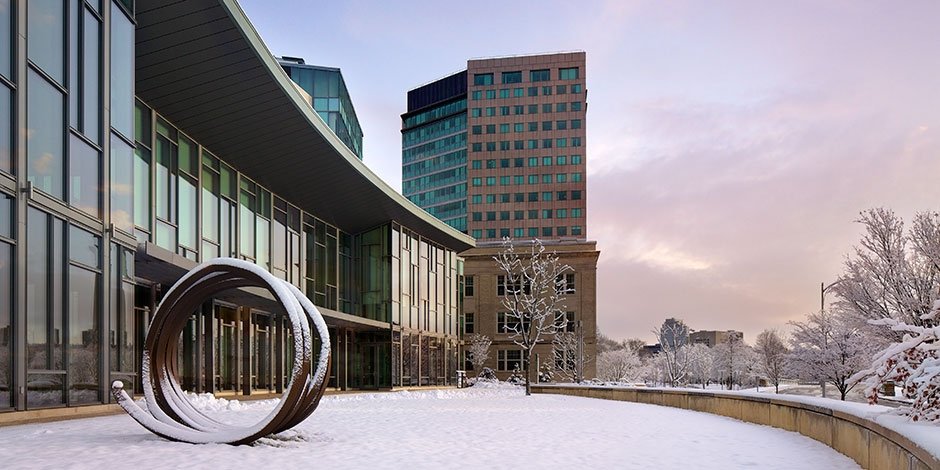MBA Admissions: The Thank You Note Advantage
The MBA admissions process doesn't end after submitting an application. After interviewing, it is critical to take the time to follow up with a thank you note. In this blog post, we will discuss the power of sending a thank you note after interviewing with an MBA admissions officer or alumni.

Let's not overthink it: a thank you note is a brief message sent after an interview to express gratitude for the interviewer's time and consideration. It can be a handwritten card, an email, or a typed letter. No matter the form, a thank you note can leave a lasting impression and demonstrate your interest in the program. At M7A, we believe there are numerous benefits of this simple yet impactful practice.
Demonstrating Appreciation
The Importance of Gratitude
A thank you note first and foremost conveys your gratitude. Admissions officers, who tirelessly review numerous applications, will recognize and value this gesture of appreciation.
Standing Out Among Applicants
Making a Memorable Impression
In a competitive field, thank you notes help differentiate you from other candidates. This small action can highlight your professionalism and attention to detail, traits that are highly regarded in prestigious MBA programs.
Reinforcing Your Interest
Showcasing Continued Enthusiasm
Your thank you note is an opportunity to reiterate your keen interest in the program. It's a strategic way to remind the admissions committee of your dedication and enthusiasm for joining their MBA community.
Highlighting Your Qualifications
A Chance to Reaffirm Your Strengths
Use your thank you note to subtly reinforce key aspects of your qualifications or to touch upon important points not covered in the interview. It's a smart way to keep your candidacy prominent in the admissions officers' minds.
Building Positive Relationships
Fostering Connection Beyond the Interview
Sending a thank you note can initiate a positive rapport with the admissions team. It reflects your understanding of professional etiquette and your commitment to building respectful professional relationships.
Opening Doors for Feedback
Gaining Insights for Future Growth
Occasionally, a thank you note might lead to feedback from an admissions officer. This could provide valuable insights into your application or guidance for future endeavors in the MBA landscape.
Conclusion
Incorporating thank you notes into your MBA admissions strategy is a smart move. These notes help in showing appreciation, making your application stand out, reinforcing your interest, highlighting your strengths, building positive relationships, and potentially opening doors for valuable feedback.
Keep reading

The Authenticity Test: When Your Dream Career Story Might Be Sabotaging Your MBA Application
I had a call this week with Sarah (name changed), one of our M7A clients applying to MIT Sloan. She came to our call with two completely different cover letters written. She felt stuck. Version 1 was bold: "I want to start an allergy therapeutics company, and MIT is where I'll make it happen." Version 2 was strategic: "I want to become an investor-operator in biotech VC, building the foundation to eventually launch something of my own." Both were well-written. Both were compelling. But only one would survive what I call The Authenticity Test.

What It Means to Be Under “Further Consideration” at HBS (and How to Turn It Into an Admit)
If you’ve been placed under “Further Consideration” by Harvard Business School, take a breath – you’re still very much in the game. This is HBS’s new version of a waitlist, and while it’s unfamiliar territory for many applicants, it’s also a real opportunity. Here’s what it means, what you can (and can’t) do, and how to use this window to your advantage.

After McKinsey SkillBridge: When an MBA Makes Sense for Veterans
McKinsey’s SkillBridge fellowship helps veterans step into consulting. For some, that’s enough. For others, the next step is an MBA. In this post, we explain why some McKinsey SkillBridge alumni pursue business school, how this compares to Bain and BCG, and how to frame your experience for MBA admissions.

Bain Announces SkillBridge, Joining McKinsey and BCG
Bain & Company has officially launched its SkillBridge program, becoming the final MBB firm to offer transitioning service members a direct pathway into consulting. Following McKinsey and BCG, Bain’s 10-week internship provides hands-on experience, mentorship, and networking opportunities, helping veterans translate their military leadership skills into a corporate setting. This blog post explores Bain’s program, how it compares to its competitors, and why it’s a compelling option for veterans seeking a career in consulting.